FijiMapMarch 14–17, 2009 Fiji—the number one destination for travel stock photos. 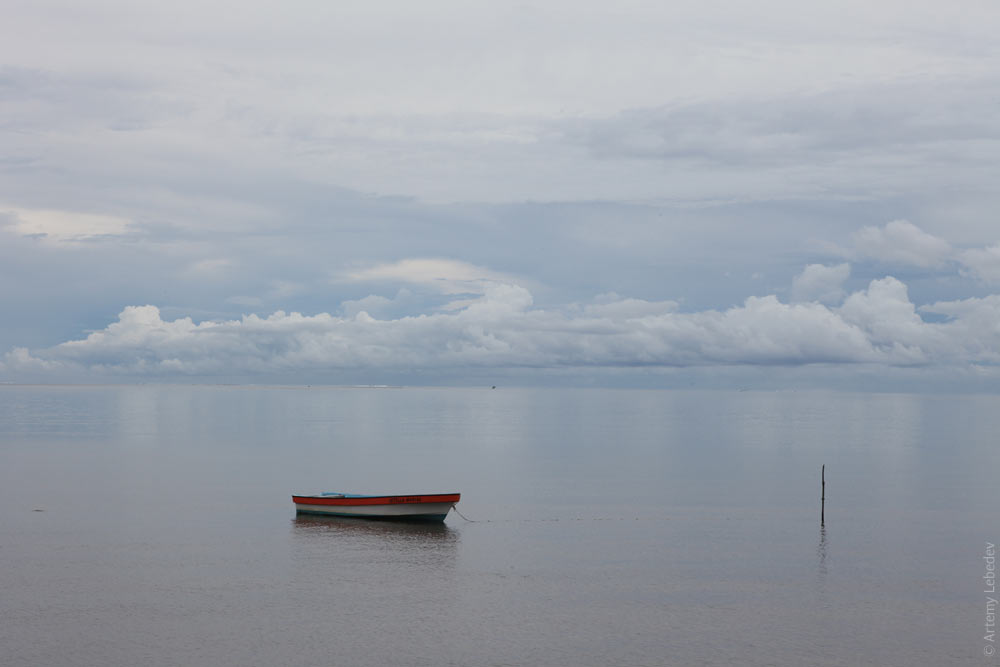 A musical ensemble greets arriving passengers. The Fiji greeting “Bula!” will continue to follow them around the island day and night. 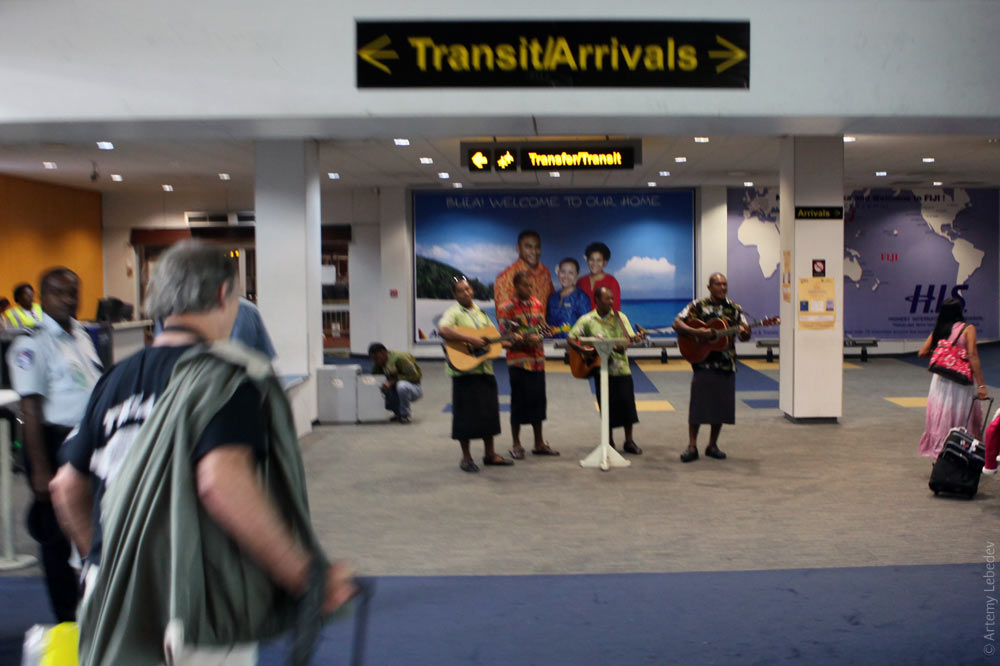 Fiji consists of two tiny ocean islands (sort of like Antigua and Barbuda, or Trinidad and Tobago). The local climate is conducive to military coups. The nation also recently abolished one- and two-cent coins. 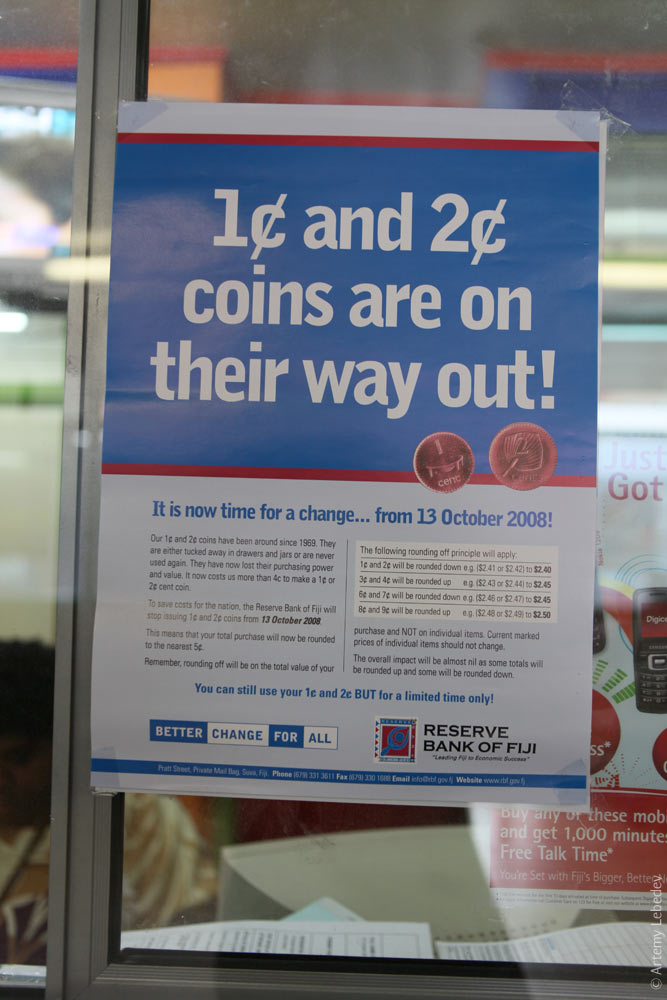 Lonely young dogs are the island’s most common form of wildlife. You see them along the entire length of the road which encircles the south (larger and main) island. I was unable to find any explanation for their presence and abundance. 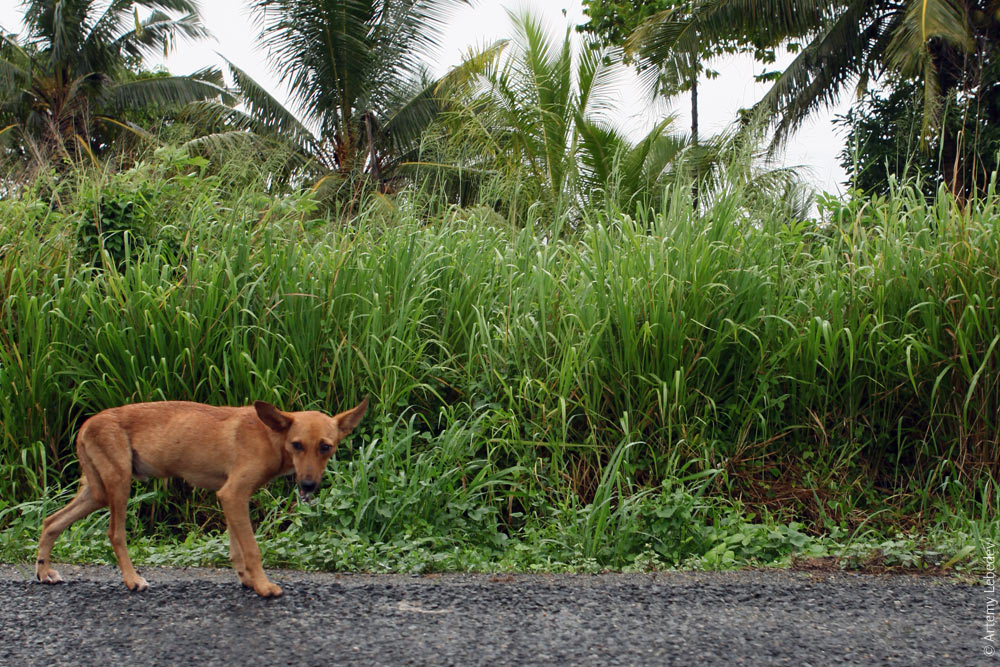 The main form of transportation is buses. Because it’s very hot year-round, there’s no glass in the side windows. In the event of rain, there are opaque rubberized curtains which can simply be untied and pulled down. 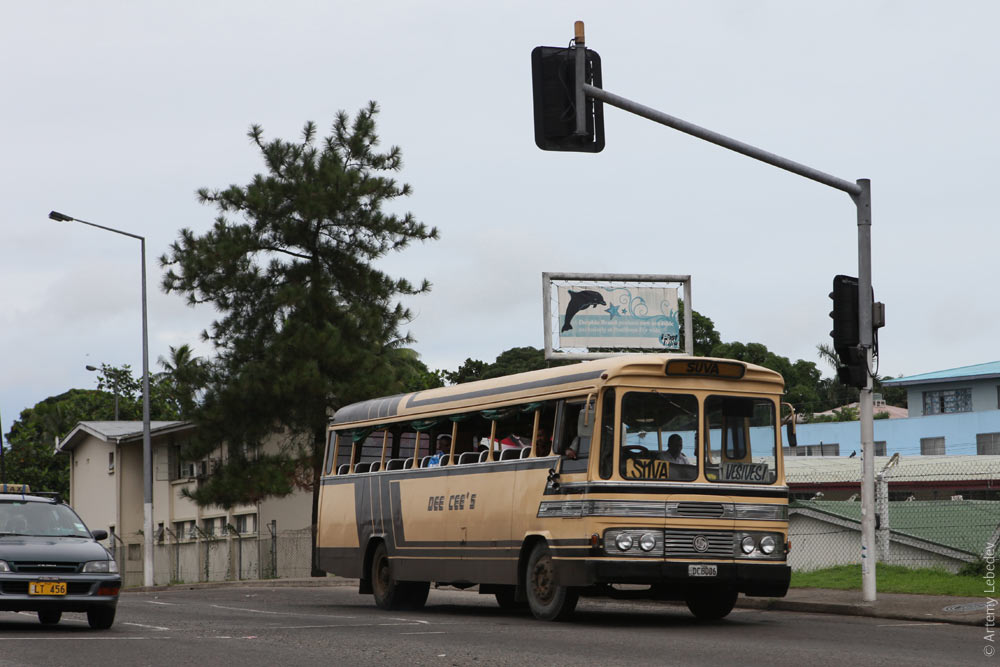 Hustlers at the airport attempt to lure tourists into three-star hotels for $150 a night, even though a five-star hotel costs about $80 a night here. The same kind of price difference exists for car rentals. I quickly rented a car online; the rental office wasn’t too pleased with my cheap rate when I showed up, but they couldn’t do anything about it. Soap is sold in the form of long multicolored rectangular sticks at the supermarket. 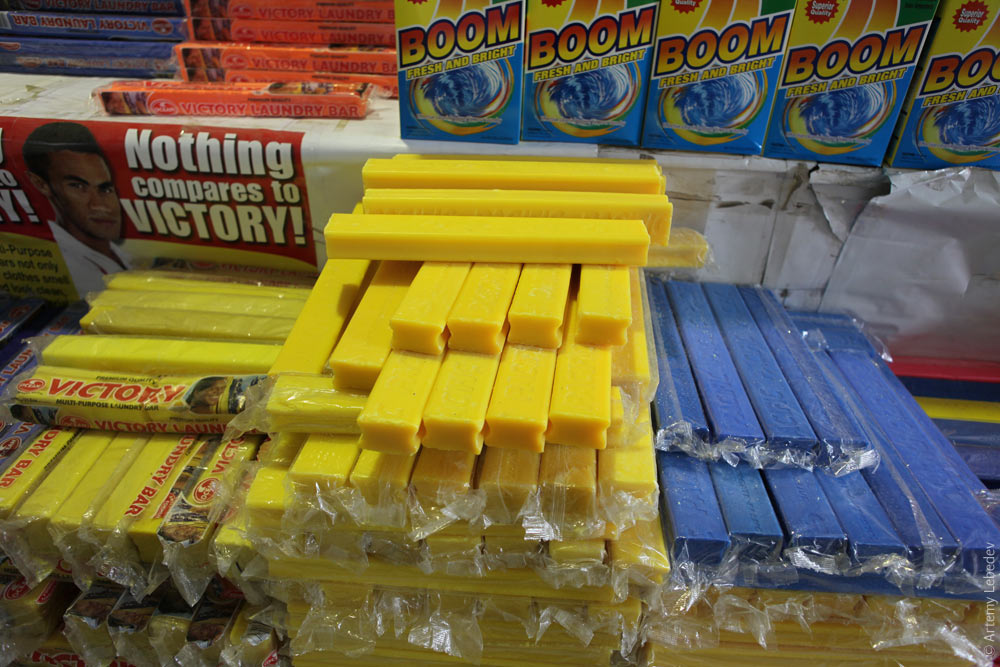 The butcher works with reckless disregard for safety precautions—he passes pieces of meat very quickly through a vertical band saw and avoids leaving his fingers on the table only thanks to his stunning dexterity.  In the mornings, older students stand at crosswalks with stop signs to halt traffic while the first-graders cross the street (like in Uganda). A commendable tradition. 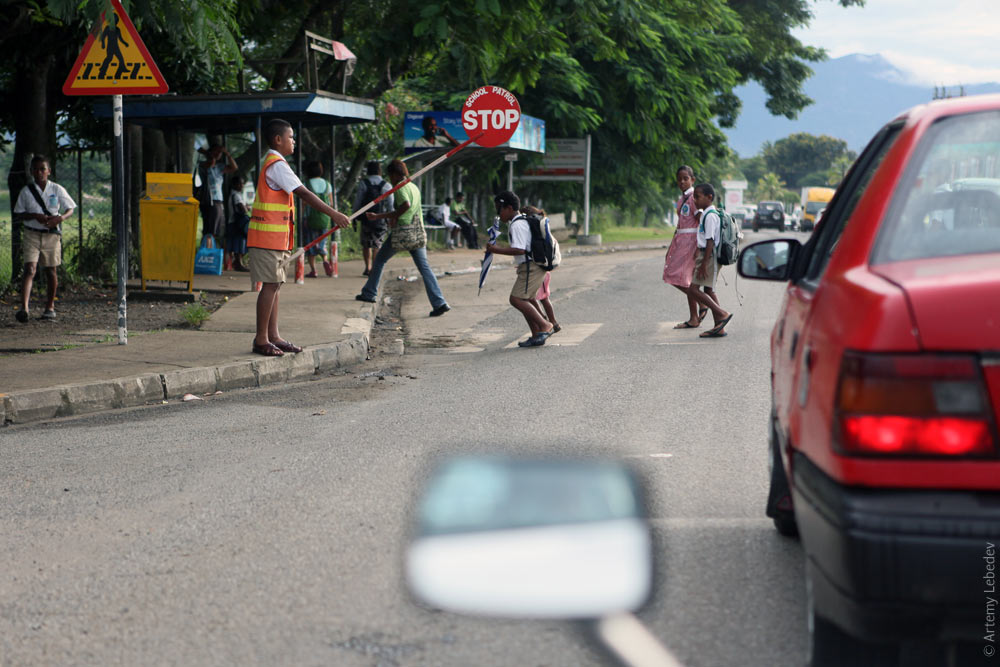 All schoolchildren wear uniforms. 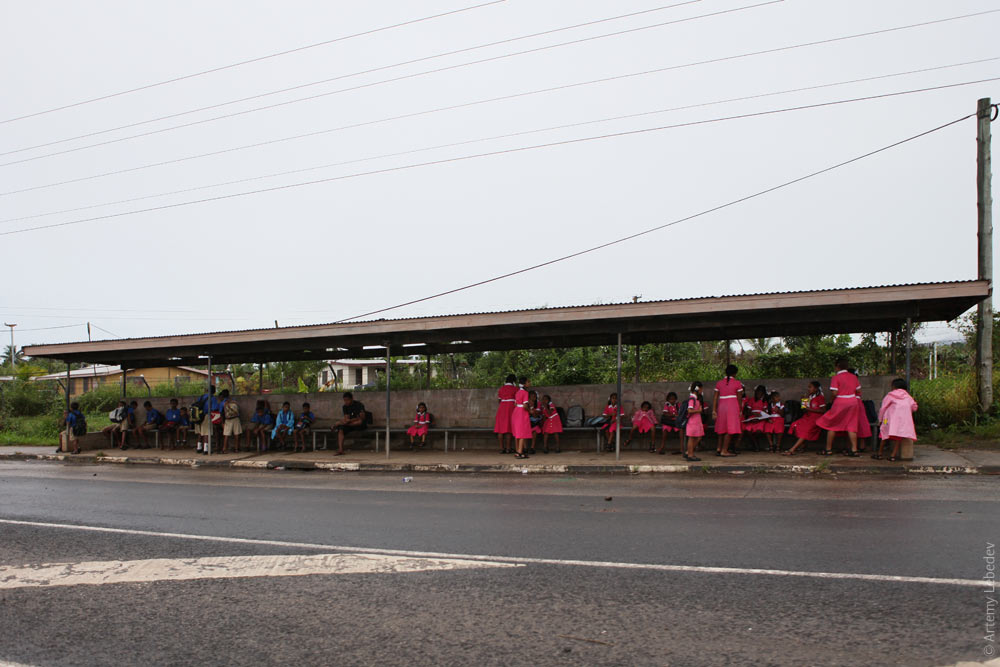 Payphones of a fairly strange design are installed all over the island. They look rather odd amidst Fiji’s filth and mud. 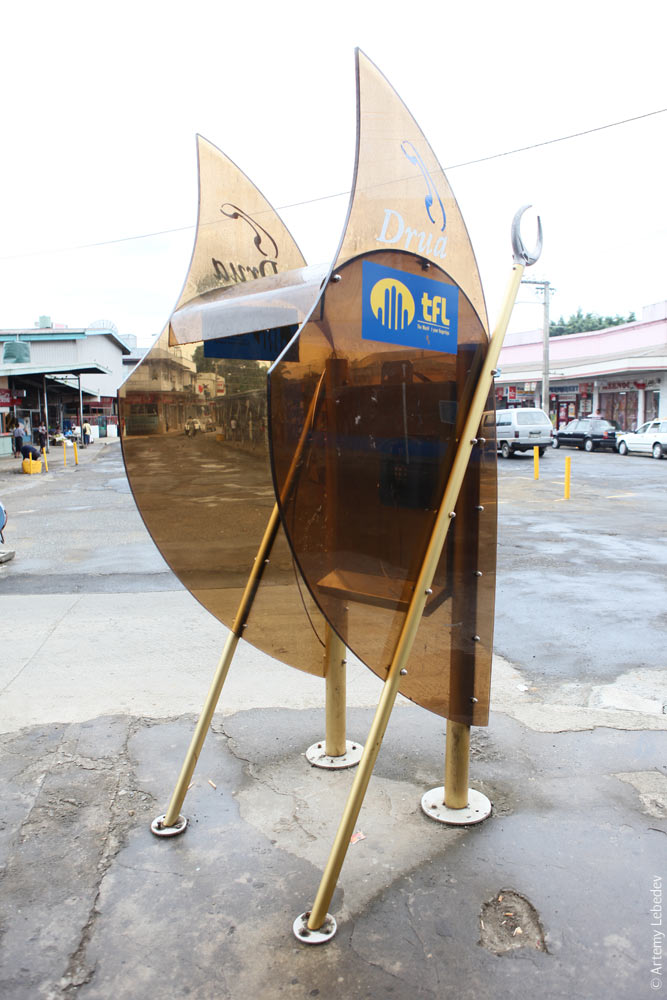 A post box. 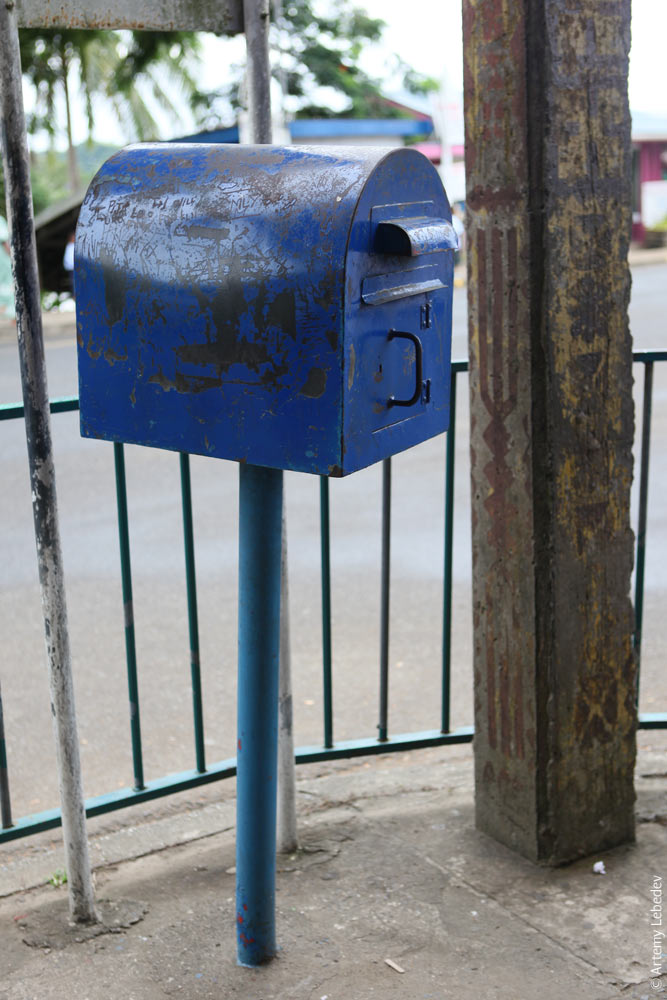 Every village has these special traditional charred firebrands. I never found out their purpose. 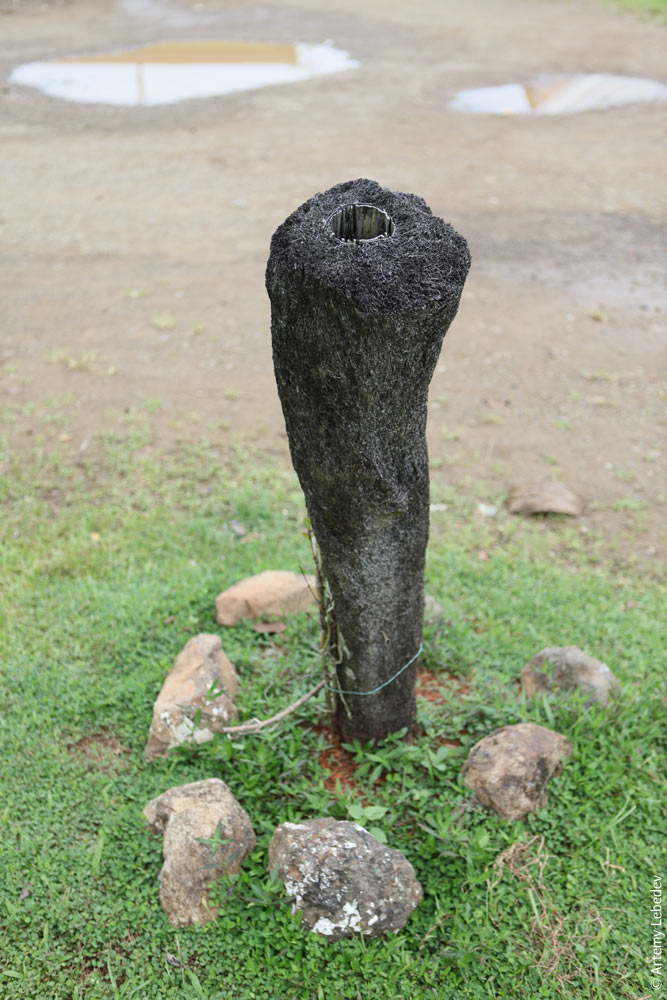 Local traffic signs mostly resemble the ones in New Zealand (i.e. European ones). 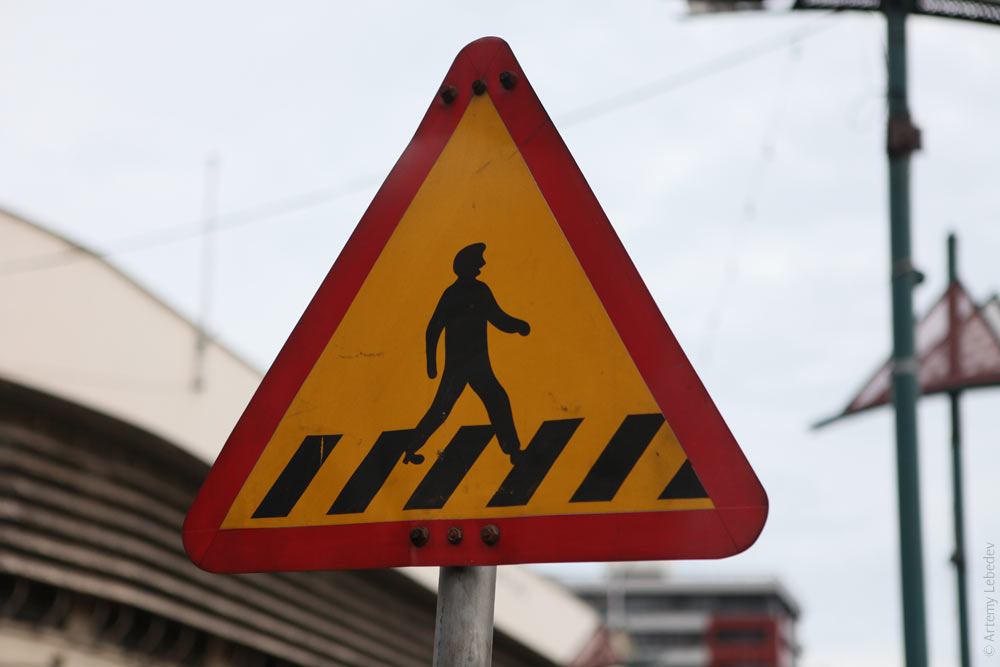 But Australia’s influence can occasionally be seen as well. 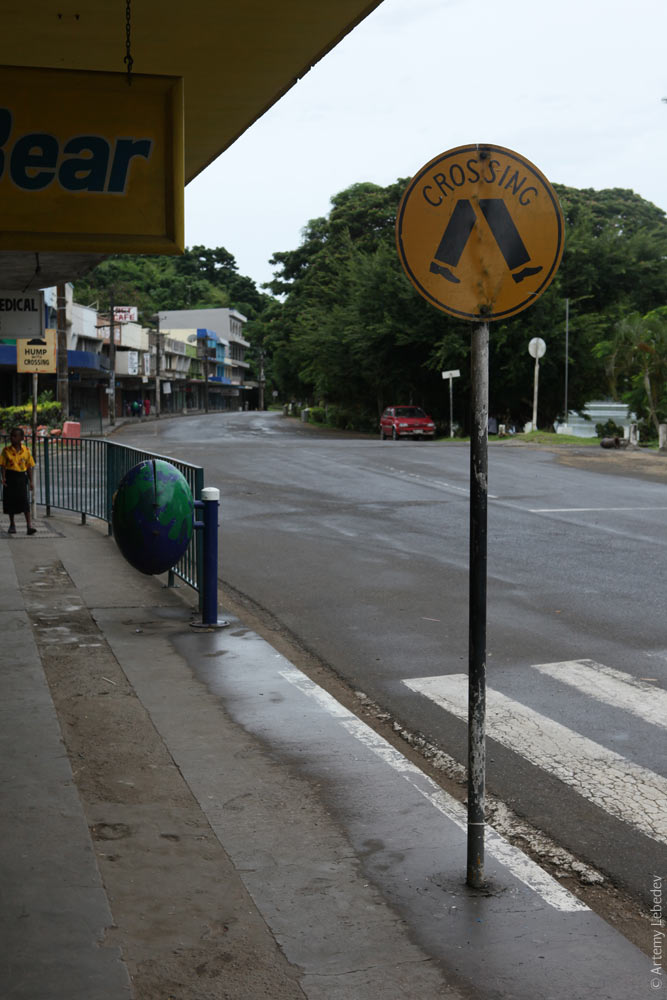 The holder for the lane division sign is fantastic. 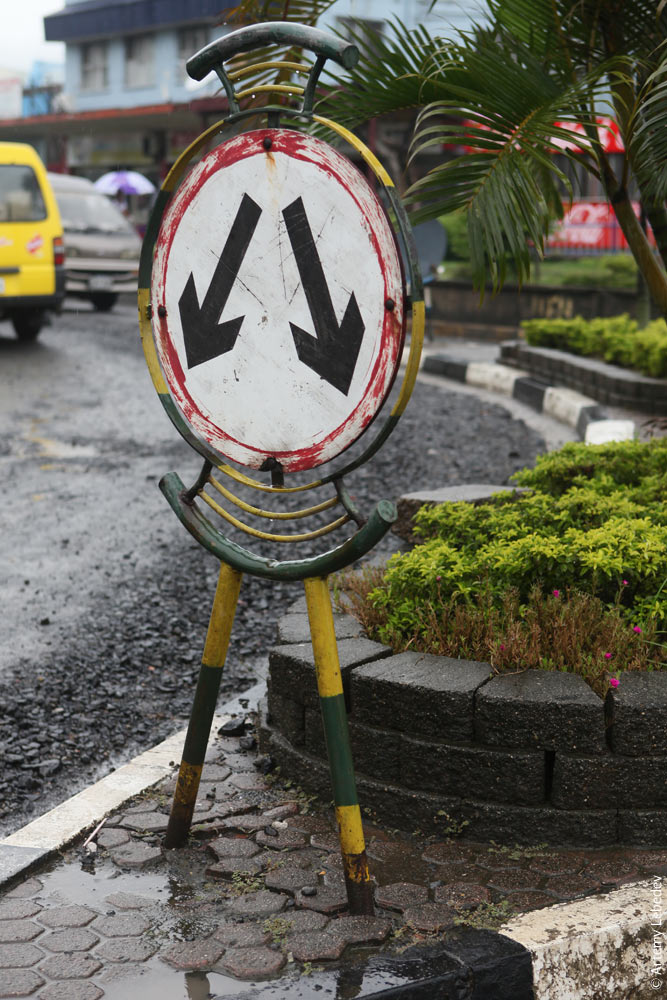 The problem of determining in which direction “No Stopping” and “No Standing” signs apply has been resolved once and for all here. The signs are placed parallel to the road rather than perpendicularly and have easy-to-understand arrows under them. 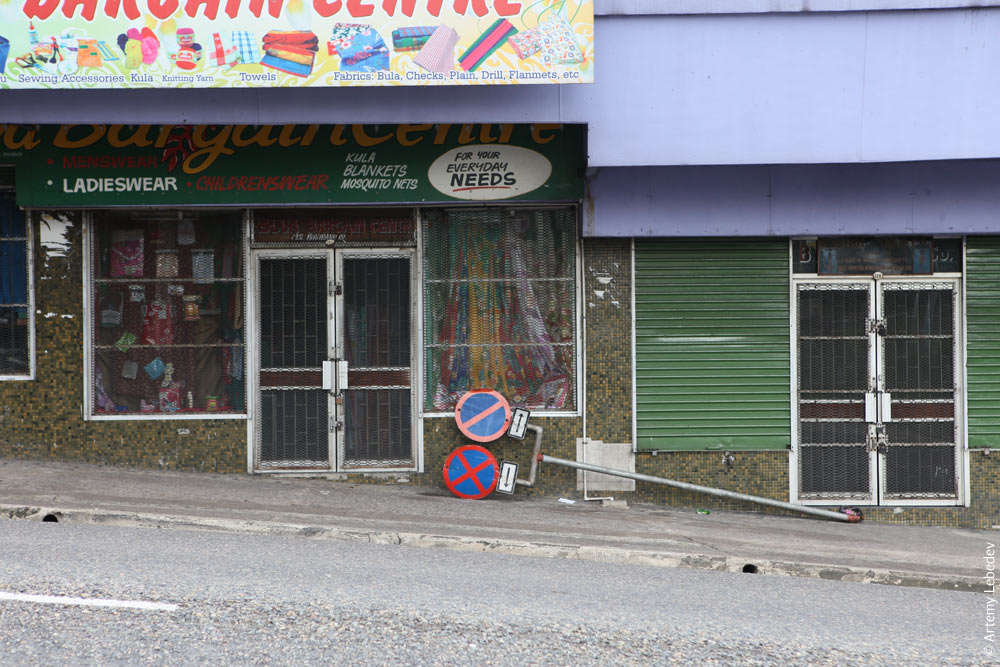 Car accident victims are commemorated with crosses on the side of the road. 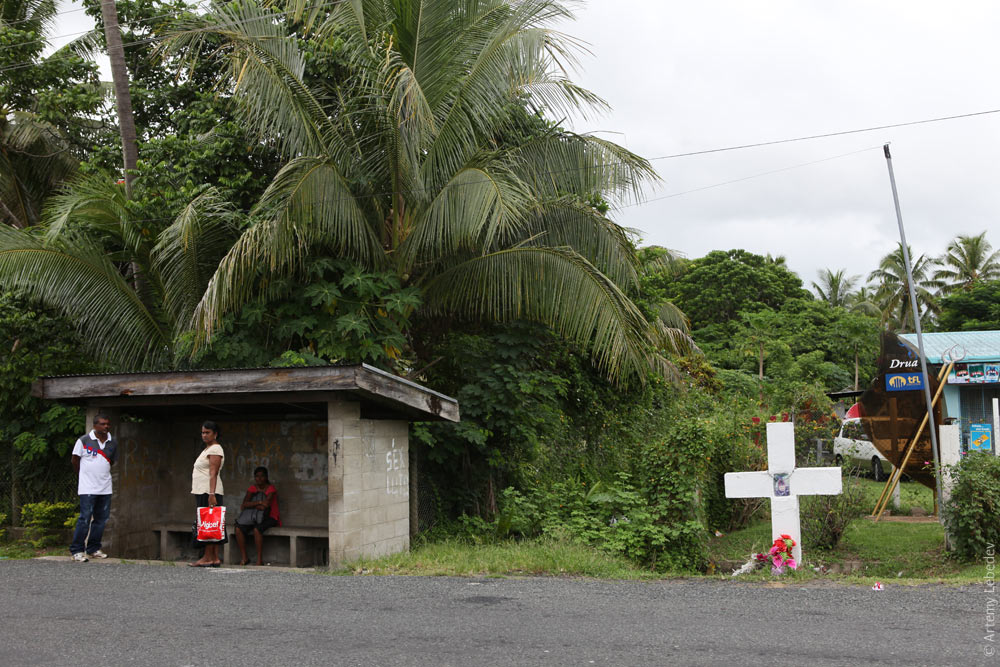 I discovered an abandoned church built in 1904 in one of the villages. It had piles of shit in one corner and piles of books from the school library in another. I found a great 1977 book about plastic manufacturing and read it over dinner. A new church that resembles a UFO has already been built next to this one. 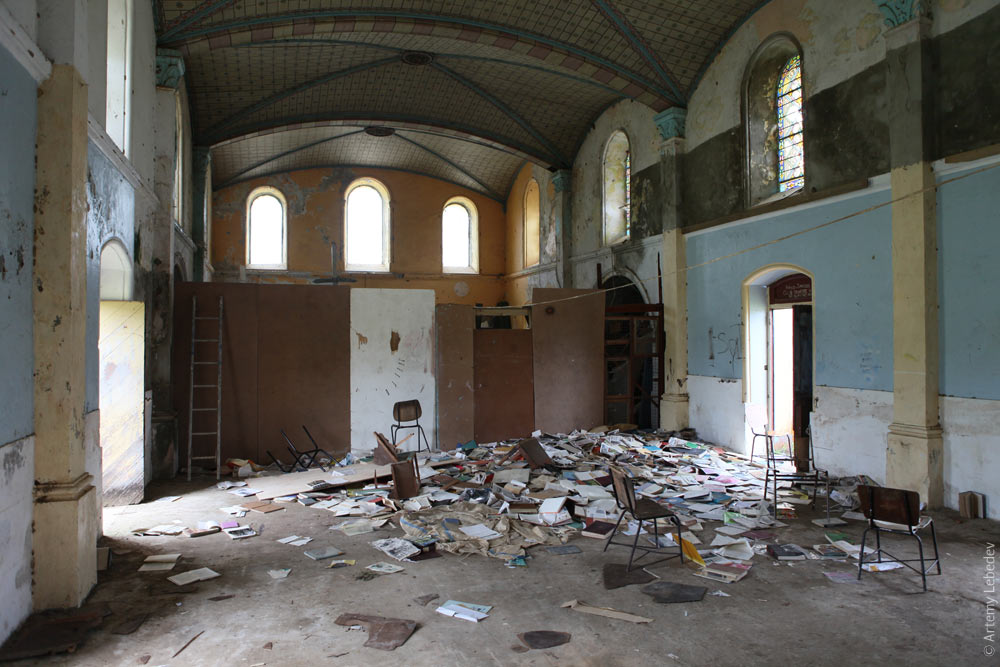 A random stationery store turned out to have an astonishing assortment of merchandise: nearly all of it was manufactured in the early 80s. The items had yellowed, shriveled and crumbled apart with time, but were still being sold as though this was perfectly normal. The rent is probably laughably low here. I couldn’t resist buying a set of Japanese bookmarks made in 1982. 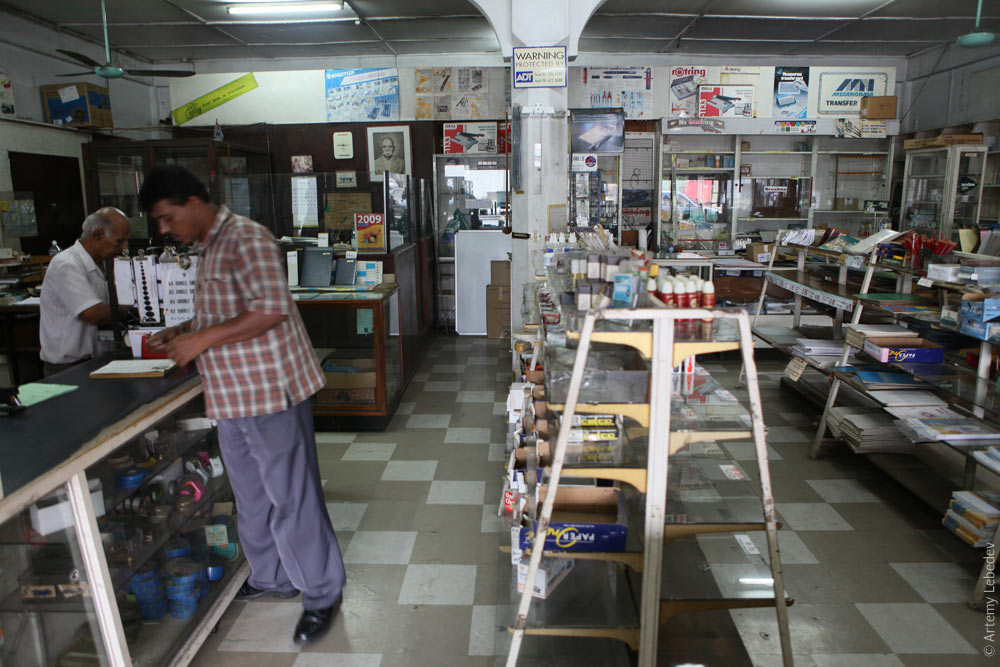 It must be nice to be a Fijian—you just sit around all day swatting flies off your bananas. 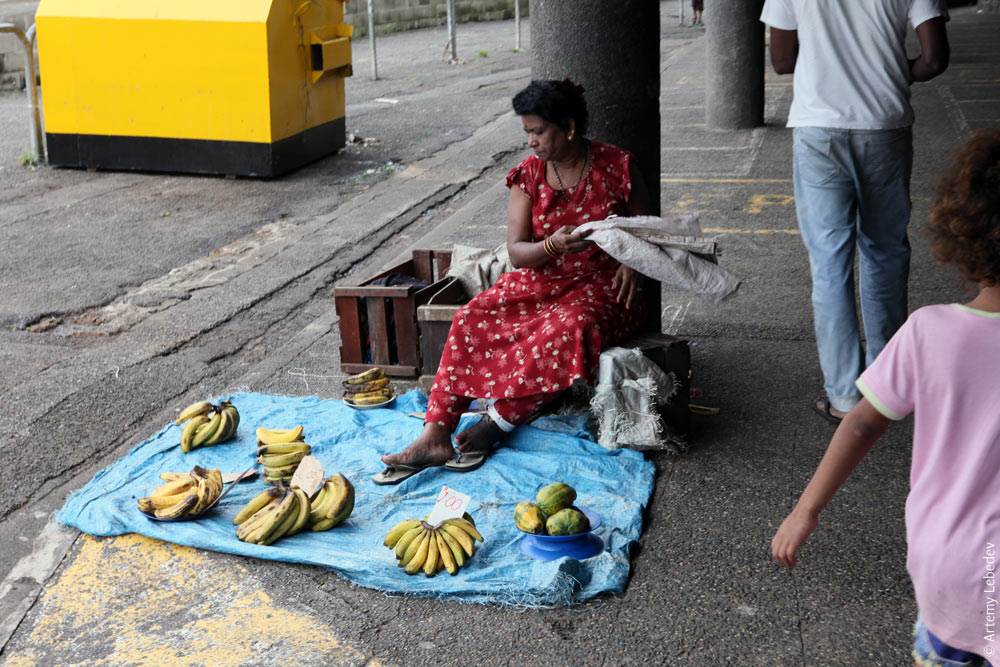 SuvaMapThe capital. 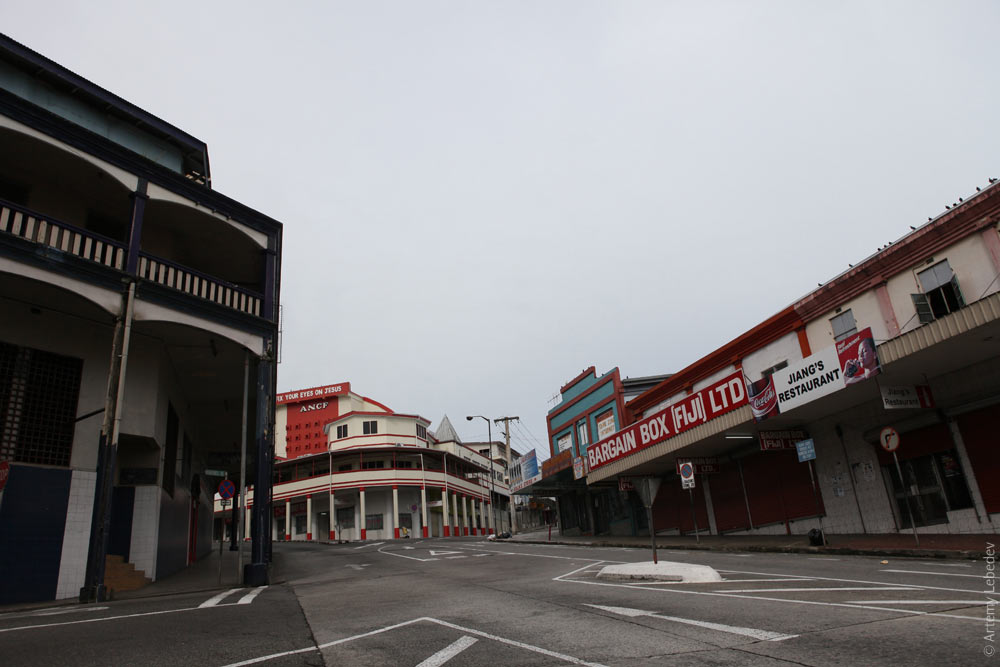 Some colonial architecture reminiscent of Australia still remains here. 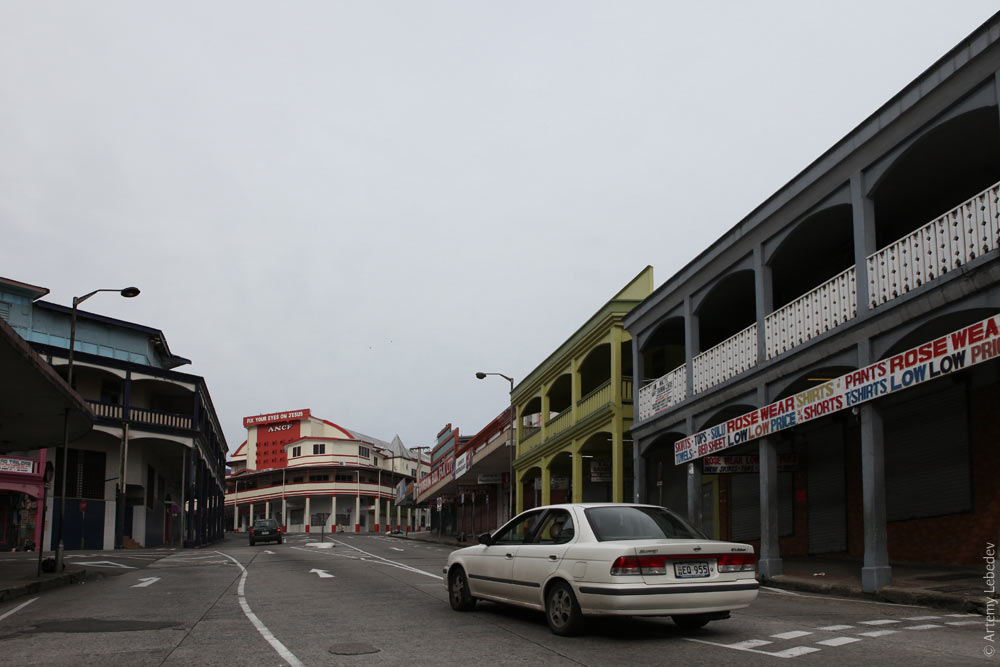 An excellent idea for traffic regulation at an intersection. The leftmost lane always has a green light, and a regular traffic light applies to the second lane (separated by a raised divider) because there’s another road intersecting with this one from the right. No one gets in anyone’s way. 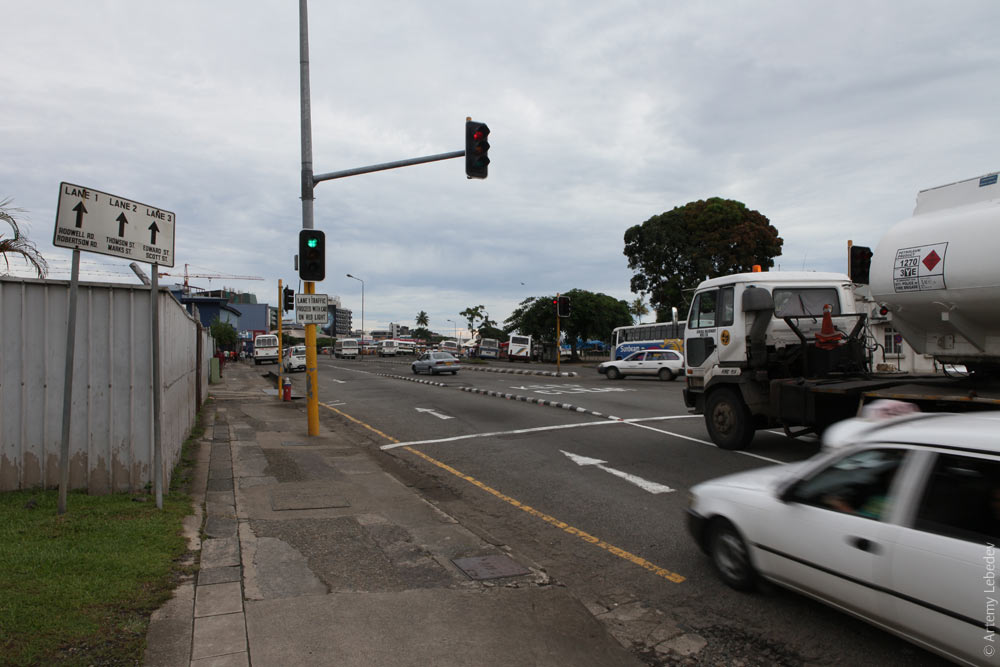 A campaign of solidarity and support for ex-offenders is currently underway in Suva. The campaign’s symbol is a giant yellow ribbon hanging from the trees and lampposts. 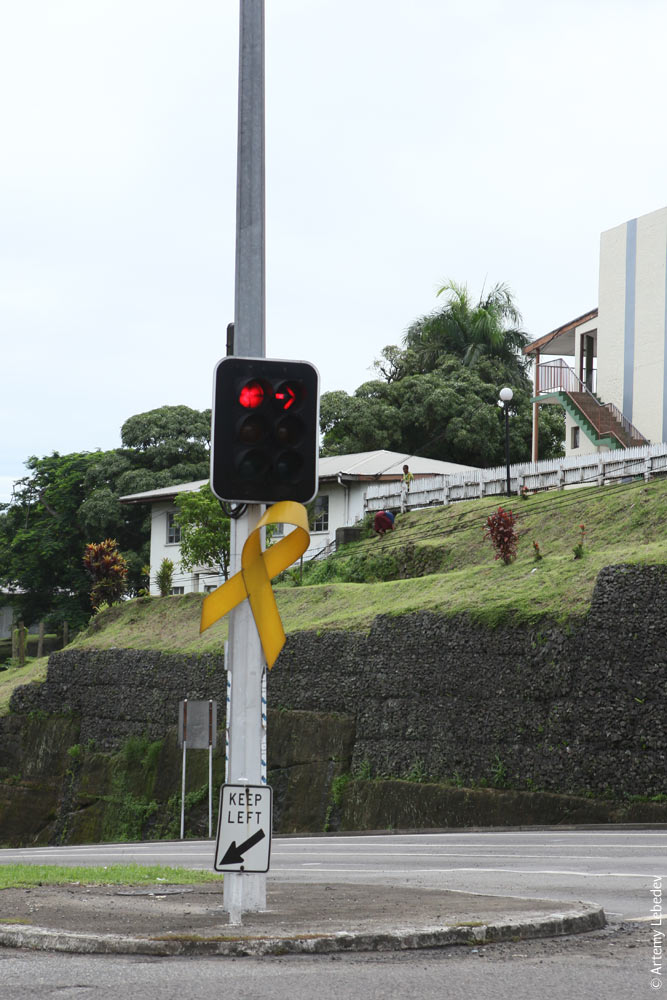 NadiMapA Nadi trash can. 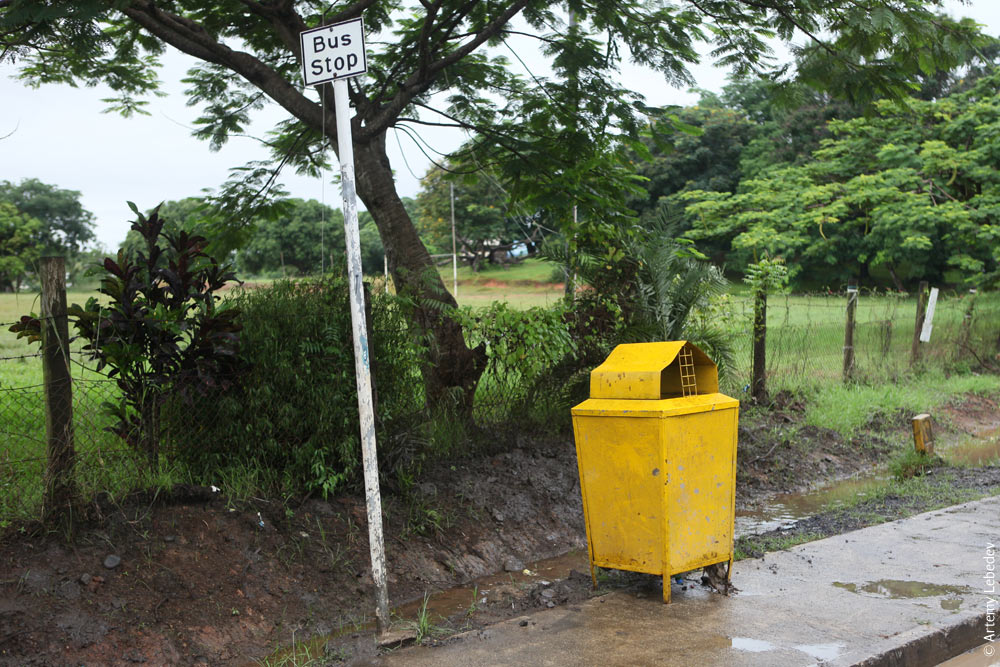 SigatokaMapA Sigatoka trash can. 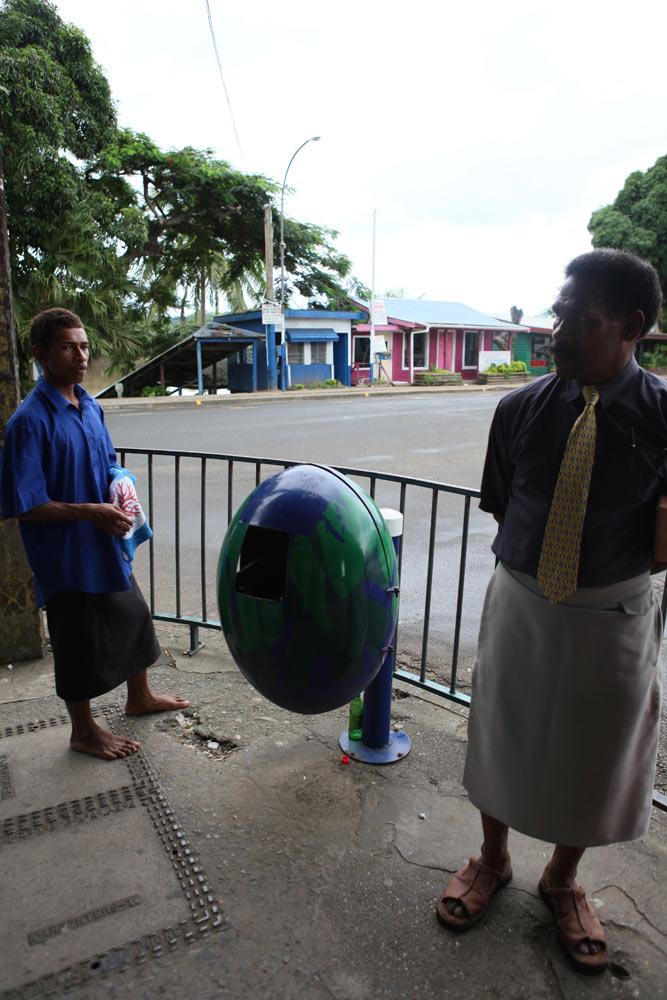 LautokaMapA Lautoka trash can. 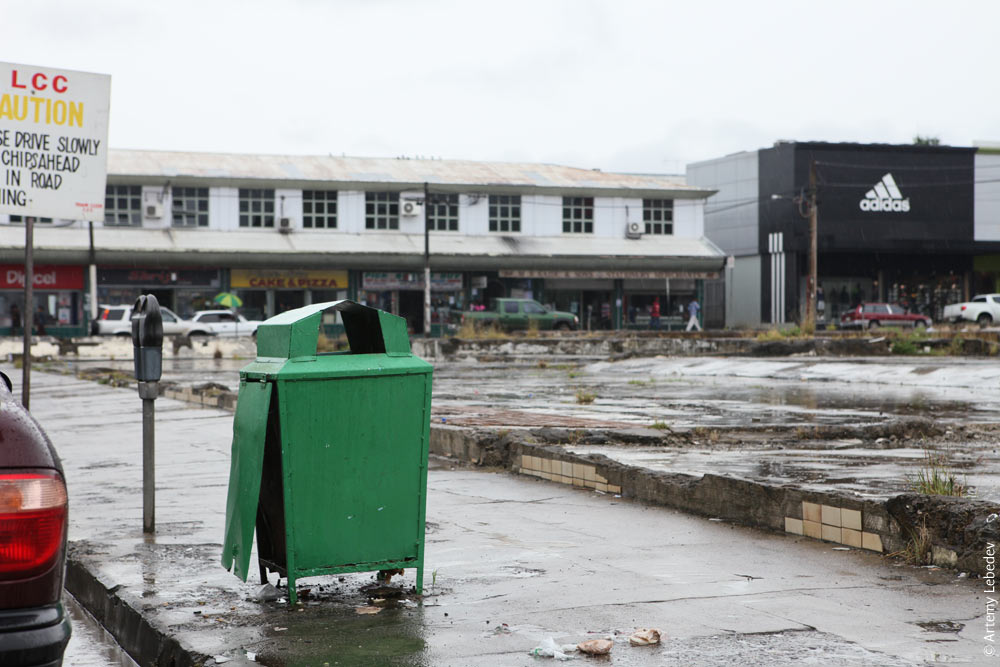 |